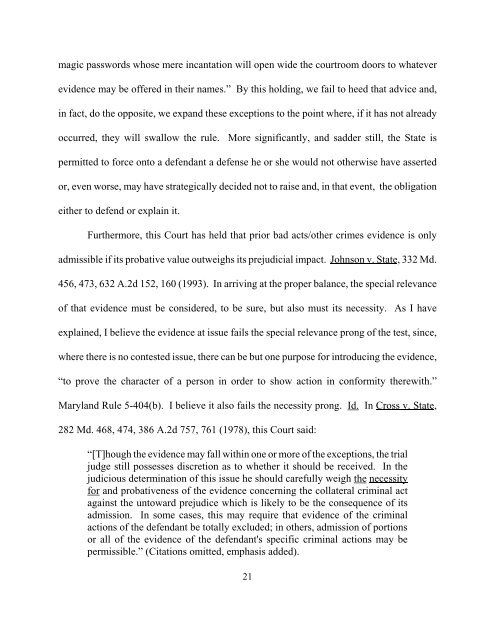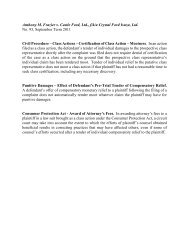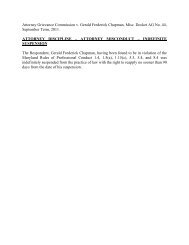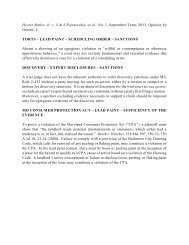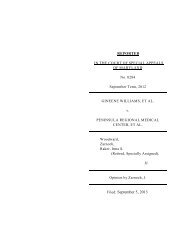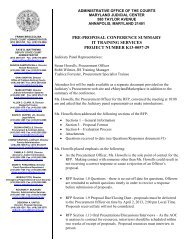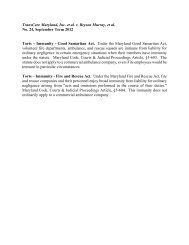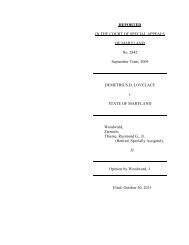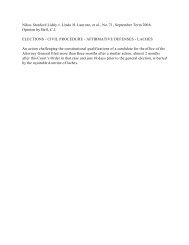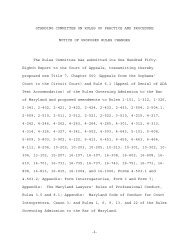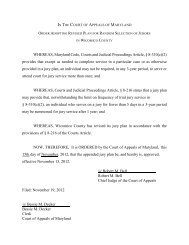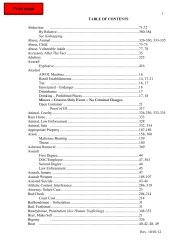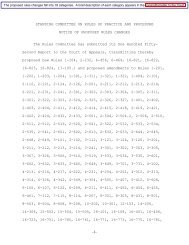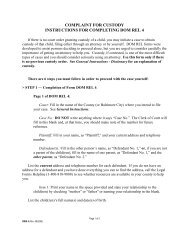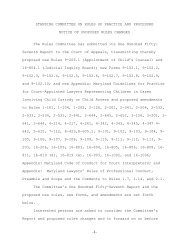HEADNOTE: Mario Rodriguez Gutierrez v. State of Maryland, No. 98 ...
HEADNOTE: Mario Rodriguez Gutierrez v. State of Maryland, No. 98 ...
HEADNOTE: Mario Rodriguez Gutierrez v. State of Maryland, No. 98 ...
You also want an ePaper? Increase the reach of your titles
YUMPU automatically turns print PDFs into web optimized ePapers that Google loves.
magic passwords whose mere incantation will open wide the courtroom doors to whatever<br />
evidence may be <strong>of</strong>fered in their names.” By this holding, we fail to heed that advice and,<br />
in fact, do the opposite, we expand these exceptions to the point where, if it has not already<br />
occurred, they will swallow the rule. More significantly, and sadder still, the <strong>State</strong> is<br />
permitted to force onto a defendant a defense he or she would not otherwise have asserted<br />
or, even worse, may have strategically decided not to raise and, in that event, the obligation<br />
either to defend or explain it.<br />
Furthermore, this Court has held that prior bad acts/other crimes evidence is only<br />
admissible if its probative value outweighs its prejudicial impact. Johnson v. <strong>State</strong>, 332 Md.<br />
456, 473, 632 A.2d 152, 160 (1993). In arriving at the proper balance, the special relevance<br />
<strong>of</strong> that evidence must be considered, to be sure, but also must its necessity. As I have<br />
explained, I believe the evidence at issue fails the special relevance prong <strong>of</strong> the test, since,<br />
where there is no contested issue, there can be but one purpose for introducing the evidence,<br />
“to prove the character <strong>of</strong> a person in order to show action in conformity therewith.”<br />
<strong>Maryland</strong> Rule 5-404(b). I believe it also fails the necessity prong. Id. In Cross v. <strong>State</strong>,<br />
282 Md. 468, 474, 386 A.2d 757, 761 (1978), this Court said:<br />
“[T]hough the evidence may fall within one or more <strong>of</strong> the exceptions, the trial<br />
judge still possesses discretion as to whether it should be received. In the<br />
judicious determination <strong>of</strong> this issue he should carefully weigh the necessity<br />
for and probativeness <strong>of</strong> the evidence concerning the collateral criminal act<br />
against the untoward prejudice which is likely to be the consequence <strong>of</strong> its<br />
admission. In some cases, this may require that evidence <strong>of</strong> the criminal<br />
actions <strong>of</strong> the defendant be totally excluded; in others, admission <strong>of</strong> portions<br />
or all <strong>of</strong> the evidence <strong>of</strong> the defendant's specific criminal actions may be<br />
permissible.” (Citations omitted, emphasis added).<br />
21


